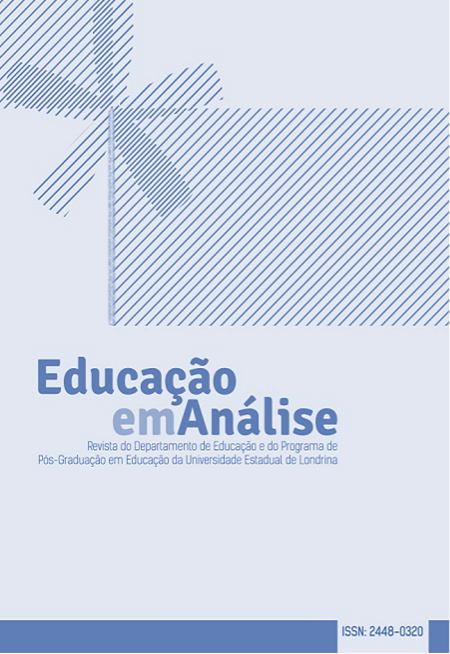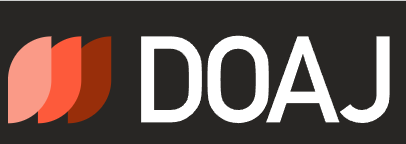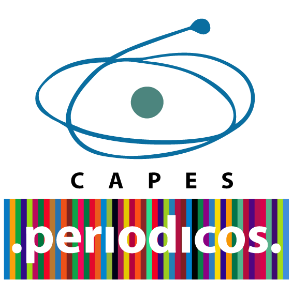Twitter in education: searching in and with digital social networks
DOI:
https://doi.org/10.5433/1984-7939.2019v4n1p85Keywords:
Education, Cyberculture, Social Networks, Twitter.Abstract
This article is part of the research on Digital Social Networks in Education conducted by GPDOC - Teaching and Cyberculture Research Group, of the Graduate Program in Education (PROPED) of the State University of Rio de Janeiro - UERJ. The purpose of this paper is to present a contribution to the theme Social Networks in Education, with the object of study Twitter, a microblogging software that has been structuring social and learning networks on the Internet. In this paper, we present Twitter not only as social software, but also as a fruitful field of research and training. For this, we opted for the multi-reference approach (ARDOINO, 1998) withimmersion in the interface, taking as data the tweets published by some of the most important researchers in the area of Cyberculture, in October/November 2010. To analyze them, the researchers performed an interpretative reading of the messages, in order to understand meanings and recurrences, which constituted the subsuming notions, presented here as representative categories of such uses (MACEDO, 2008). They are: the use of Twitter for communication between geographically dispersed subjects, the use to make public the reports of daily life, the use as an information filter and the use for discussion on specific topics. From these uses, we understand that Twitter can structure processes of collaborative construction of knowledge through some communicational potentialities of the interface, among which we can mention: multidirectional communication, information sharing and community building.Downloads
References
ARDOINO, J. Abordagem multirreferencial (plural) das situações educativas e formativas. In: BARBOSA, J. G. (coord.). Multirreferencialidade nas ciências e na educação. São Carlos: Editora da UFSCar, 1998. p. 24-41
CARRANO, P. C. R. Redes sociais de internet numa escola de ensino médio: entre aprendizagens mútuas e conhecimentos escolares. Revista Perspectiva, Florianópolis, v. 35, n. 2, p. 395-421, abr./jun. 2017. DOI: http://dx.doi.org/10.5007/2175-795X.2017v35n2p395.
LEMOS, A. A arte da vida: webcams e diários pessoais na internet. In: CONGRESSO BRASILEIRO DE CIÊNCIAS DA COMUNICAÇÃO, 25., 2002, Salvador. Anais [...]. Salvador: INTERCOM, 2002. Disponível em: http://www.intercom.org.br/papers/nacionais/2002/Congresso2002_ Anais/2002_NP8lemos.pdf. Acesso em: 5 abr. 2011.
LEMOS, A. Cibercultura, tecnologia e vida social na cultura contemporânea. 3. ed. Porto Alegre: Sullinas, 2007
LÉVY, P. Cibercultura. São Paulo: Ed. 34, 1999.
MACEDO, R. S. O rigor hermenêutico na análise e interpretação em etnopesquisa crítica. In: OKADA, A. (org.) Cartografia cognitiva: mapas do conhecimento para pesquisa, aprendizagem e formação docente. Cuiabá: KCM, 2008. p. 43-56.
MARTINS, A. V.; AGUIAR, L. F. Blogosfera e twittosfera: a relação entre blog e microblog. In: SIMPÓSIO NACIONAL ABCIBER, 3., 2009, São Paulo. Anais [...]. São Paulo: Abciber, 2009. Disponível em: http://www.abciber.com.br/simposio2009/trabalhos/anais/pdf/artigos/5_jornalismo/eixo 5_art4.pdf. Acesso em: 5 abr. 2011.
NICOLAU, M. A função múltimidiática do twitter. In: SIMPÓSIO NACIONAL ABCIBER, 3, 2009, São Paulo. Anais [...]. São Paulo: Abciber, 2009. Disponível em: http://www.abciber.com.br/simposio2009/trabalhos/anais/pdf/mesas/1_redes/eixo1_mes a2.pdf. Acesso em: 5 abr. 2011.
O'REILLY, T. What Is Web 2.0 - Design Patterns and Business Models for the Next Generation of Software. O'Reilly Publishing, 2005.
PRIMO, A. O aspecto relacional das interações na web 2.0. E- Compós, Brasília, v. 9, p. 1-21, 2007.
RECUERO, R. Redes sociais na internet. Porto Alegre: SULINA, 2009a. (Coleção Cibercultura).
RECUERO, R. A economia do twitter: novos apontamentos. Social media, [S. l.], 2009b. Disponível em: http://www.raquelrecuero.com/arquivos/a_economia_do_twitter_mais_apontamentos.html. Acesso em: 5 abr. 2011.
SANTAELLA, L.; LEMOS, R. Redes sociais digitais: a cognição conectiva do twitter. São Paulo: Paulus, 2010. (Coleção Comunicação).
SANTOS, E. O. Projeto de pesquisa: "docência na cibercultura: laboratórios de informática, computadores móveis e educação online". Rio de Janeiro: UERJ, CNPq, 2009.
SANTOS, E. O. A informática na educação antes e depois da web 2.0: relatos de uma docente-pesquisadora. In: RANGEL, M.; FREIRE, W. Ensino aprendizagem e comunicação. Rio de Janeiro: Wak Editora, 2010a. p. 107-129.
SANTOS, E. O. Projeto de pesquisa: "a cibercultura na era das redes sociais e da mobilidade: novas potencialidades para a formação de professores". Rio de Janeiro: Proped-UERJ: CNPq, 2010b.
SANTOS, E. O. Pesquisando com a mobilidade ubíqua em redes sociais da internet: um case com o twitter. ComCiencia, Campinas, 2012. Disponível em: http://www.comciencia.br/comciencia/handler.php?
section=8&edicao=74&id=932. Acesso em: 1 mar. 2012.
ZAGO, G. Dos blogs aos microblogs: aspectos históricos, formatos e características. 2008. Disponível em: http://www.bocc.ubi.pt/pag/zago-gabriela-dos-blogs-aos-microblogs.pdf. Acesso em: 5 abr. 2011.
Downloads
Published
How to Cite
Issue
Section
License
Copyright (c) 2019 Educação em Análise

This work is licensed under a Creative Commons Attribution 4.0 International License.
Os artigos publicados na Revista Educação em Análise estão sob a Licença Creative Commons Atribuição 4.0 Internacional, garantindo Acesso Aberto. Deste modo, os autores mantêm os direitos autorais de seus trabalhos e, em caso de republicação, solicita-se que indiquem a primeira publicação nesta revista. Essa licença permite que qualquer pessoa leia, baixe, copie e compartilhe o conteúdo, desde que a devida citação seja feita. Além disso, autoriza a redistribuição, adaptação e criação de obras derivadas em qualquer formato ou meio, incluindo uso comercial, desde que a atribuição à revista seja mantida.
A revista se reserva o direito de efetuar, nos originais, alterações de ordem normativa, ortográfica e gramatical, com vistas a manter o padrão culto da língua e a credibilidade do veículo. Respeitará, no entanto, o estilo de escrever dos autores. Alterações, correções ou sugestões de ordem conceitual serão encaminhadas aos autores, quando necessário.
As opiniões emitidas pelos autores dos artigos são de sua exclusiva responsabilidade.
























